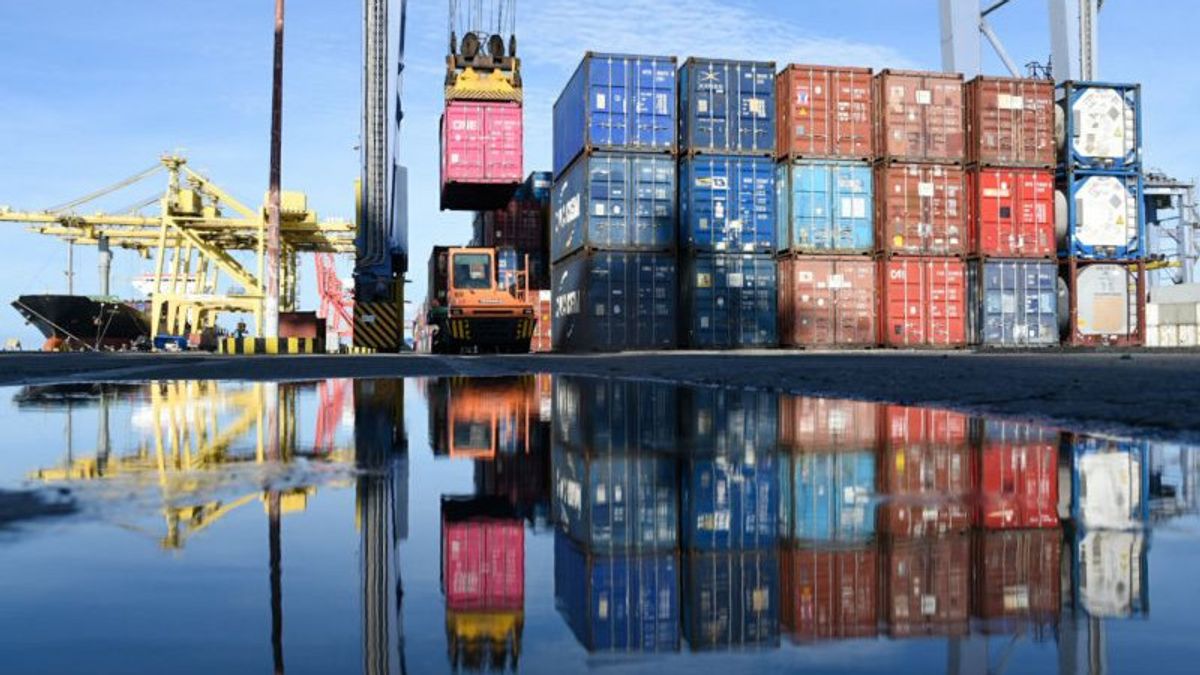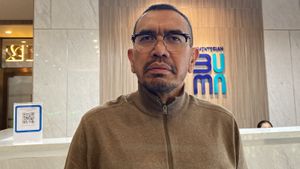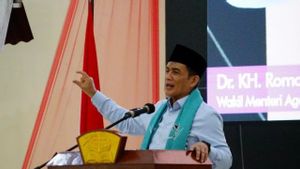Apindo Economic Policy Analyst Ajib Hamdani assessed that Indonesia's economic growth in the first quarter of 2024 was 5.11 percent year on year (yoy) not optimal.
This is because during this period there are inflation fluctuations that put pressure on people's purchasing power.
Ajib explained that inflation in the first quarter of 2024 was recorded to reach 3 percent, higher than the 2023 aggregate inflation which only reached 2.61 percent.
"If the inflation trend does not decrease, then purchasing power will continue to experience pressure and high economic growth tends not to be sustainable," he said in his statement, Tuesday, May 7.
Ajib conveyed that further monetary incentives, fiscal incentives, as well as pro-progenital regulations with growth and pros with equity.
In the monetary context, the benchmark interest rate issued by Bank Indonesia (BI) of 6.25 percent tends to be ideal and requires adjustments.
"The high interest rate rate will reduce liquidity in the economic system and also encourage cost push inflation," he explained.
Meanwhile, from the fiscal side, the government only has a very limited space in 2024 to be able to support people's purchasing power, if only for example they rely on conventional patterns using the social assistance method.
As for the assumption that the macro rupiah exchange rate is IDR 15,000 against the US dollar and also the price of 82 US dollars oil per barrel, the state's financial structure has a deficit of more than 500 trillion or the equivalent of 2.8 percent of Gross Domestic Product (GDP).
"Even the issue of increasing VAT rates in early 2025, also puts pressure on the business world and has a psychological impact on rising prices of goods," he said.
Meanwhile, on the regulatory side, Ajjib said that there should be more incentives for labor-intensive industries.
Because, naturally, investment that continues to flow tends to be investment-intensive.
So that the investment achievement, which has always been over the target since 2019, is not accompanied by employment.
From the target of absorbing 3 million workers, in 2023 it will only be able to absorb 1.8 million.
in addition to monetary, fiscal and regulatory factors, he continued, the government must also carry out a priority downstream program involving more stakeholders and national economic actors.
"This downstream program will provide more maximum economic leverage when the government focuses on the agriculture, fisheries, livestock and plantation sectors. The downstream program, which is part of President Jokowi's commitment as part of economic transformation, must be further developed in the next era of government," he said.
SEE ALSO:
Ajib said that if the government focuses on 4 (four) things, then economic growth throughout 2024 will continue to be escalated and until the end of the year it can reach the aggregate target of 5.2 percent.
"However, when the government does not provide targeted incentives, economic growth will achieve below the target, as stated in the projection of the Macro Economic Framework," he concluded.
The English, Chinese, Japanese, Arabic, and French versions are automatically generated by the AI. So there may still be inaccuracies in translating, please always see Indonesian as our main language. (system supported by DigitalSiber.id)

















